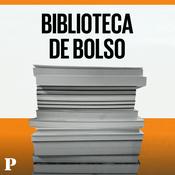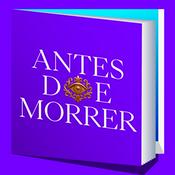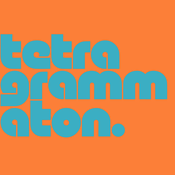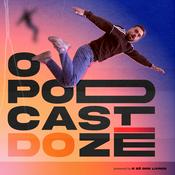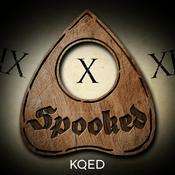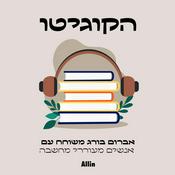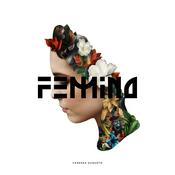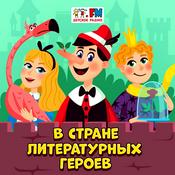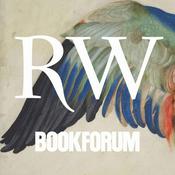331 episódios
- Here’s episode 3 covering my 2026 read-through of the Bible. I talk about the ideas that have stuck out to me while reading the books of Samuel, Kings, Isaiah, and Jeremiah. I also highlight some overarching themes so far from this reading.
Show Notes:
Purchase The Intertextual Tanakh from Landmark Booksellers.
Dr. Jason Staples’ Suggested Bible Reading Order (start at the 1hr 16 minute mark)
This is a public episode. If you'd like to discuss this with other subscribers or get access to bonus episodes, visit www.booksoftitans.com/subscribe - Here’s episode 2 covering my 2026 read-through of the Bible. I talk about the ideas that have stuck out to me while reading the books of Deuteronomy, Joshua, Judges, and Samuel. I also highlight some overarching themes so far from this reading.
Show Notes:
Purchase The Intertextual Tanakh from Landmark Booksellers
Dr. Jason Staples’ Suggested Bible Reading Order (start at the 1hr 16 minute mark)
This is a public episode. If you'd like to discuss this with other subscribers or get access to bonus episodes, visit www.booksoftitans.com/subscribe - Over the next two months, I’m going to present quick podcast check-ins as I make my way through the Bible. I start each year reading a different translation of the Bible during the months of January and February. This year, I’m starting off with the Intertextual Tanakh, which covers The Five Books of Moses and The Former Prophets (Joshua, Judges, Samuel, Kings).
In this episode, I share a few ideas that have stuck out so far as well as a theme that is developing that I plan to track as I make my way through the rest of the Bible.
Show Notes:
Dr. Jason Staples’ Suggested Bible Reading Order (start at the 1hr 16 minute mark)
Also, here’s a way to crush your 2026 Bible reading plan!
This is a public episode. If you'd like to discuss this with other subscribers or get access to bonus episodes, visit www.booksoftitans.com/subscribe - READING YEAR THEME: GREEK PHILOSOPHY
I’ll be spending most of 2026 ploughing the depths of Plato and Aristotle. I divide eating reading year into semesters:
* Spring Semester - March - June
* Summer Break - July
* Fall Semester - August - November
* Winter Break - December
I start each year reading straight through the Bible during January & February. The versions I’m using this year are The Intertextual Tanakh (tah knock), Bibliotheca (The Latter Prophets, The Writings, The Apocrypha, and The New Testament)
Spring Semester Book List (Subject to Change)
I started Plato during Fall Semester last year. I’ll be continuing on, but am first taking a look at philosophers before Plato since he keeps referencing them. I’ll then return to the 20 or so dialogues of Plato that I have remaining within the Complete Works set.
* The First Philosophers: The Presocratics and the Sophists
* Early Greek Philosophy
* Heraclitus Fragments
* The Greek Sophists
* Plato: Complete Works
* The Republic / Bloom
* A Commentary on Plato’s Meno / Jacob Klein
* From Plato to Christ / Louis Markos
* The Cave and the Light / Arthur Herman
Summer Break
I’m going to dedicate the month of July to Gilgamesh. I love that epic so much and am going to read some of the books pictured above. I’ve been collecting anything I find about Gilgamesh and it’s time to read those books. If you know of other books related to Gilgamesh that I must read, please let me know in the comments below.
Fall Semester (Subject to Change)
If I finish reading Plato during the Spring Semester, I’ll begin reading Aristotle in the Fall Semester. Like Plato, I’m planing on reading the complete works of Aristotle. I realize that’s excessive and may change my tune, but why not. He’s one of the greatest philosophers of all time.
* The Complete Works of Aristotle Volume 1 / Hackett
* The Complete Works of Aristotle Volume 2 / Hackett
* From Aristotle to Christ / Louis Markos
Winter Break
I’m going to explore another area of interest during December - Trees! I know nothing about these strange things surrounding us outside and simply want to know more. I don’t have a list yet, so suggestions are welcome. There’s only one book so far that I keep seeing over and over again:
* The Hidden Life of Trees
Short Great Books Reading Group
I lead a reading group in Franklin, TN and this year we’ll be covering the following books, so I’ll be interspersing these books with the list above. More details here.
* A Good Man is Hard to Find by Flannery O’Connor - Jan 12
* The Overcoat by Nikolai Gogol - Feb 2
* Our Name is Dare by Kev Coleman - March 2
* One Day in the Life of Ivan Denisovich by Aleksandr Solzhenitsyn April 6
* Medea by Euripides - May 4
* Apology (Defense of Socrates) by Plato - June 1
* Till We Have Faces by C.S. Lewis - July 6
* Billy Budd by Herman Melville - August 3
* My Antonia by Willa Cather - September 7 (Labor Day)
* Candide by Voltaire - October 5
* Jason and the Golden Fleece by Apollonius - November 2
* The Nutcracker and the Mouse King by E.T.A. Hoffmann - December 7
This is a public episode. If you'd like to discuss this with other subscribers or get access to bonus episodes, visit www.booksoftitans.com/subscribe - Each year, I stack all of the books from the previous year’s reading list next to me and reminisce over the reading year. It’s one of my favorite yearly podcast episodes and it’s a great way for you to hear about some books to add to your reading list.
2025 was an incredible year of reading. I continued on in the third year of my Immortal Books project. The main focus was on Greek Tragedies, Comedies, History, and Philosophy.
In this episode, I cover the year as a whole, some of my favorite works, and some best of lists.
Here are some of my favorite podcast episodes from 2025:
This is a public episode. If you'd like to discuss this with other subscribers or get access to bonus episodes, visit www.booksoftitans.com/subscribe
Mais podcasts de Arte
Podcasts em tendência em Arte
Sobre Books of Titans Podcast
Welcome to the Books of Titans Podcast where I (Erik Rostad) seek truth & beauty in the Immortal Books. My goal is to read the Great Books written by 200 authors over the next 15 years and share what I’m learning. I’ll talk a bit about each book, tie ideas together from a variety of genres, and share the one thing I always hope to remember from each of the Immortal Books. www.booksoftitans.com
Sítio Web de podcastOuve Books of Titans Podcast, O Poema Ensina a Cair e muitos outros podcasts de todo o mundo com a aplicação radio.pt
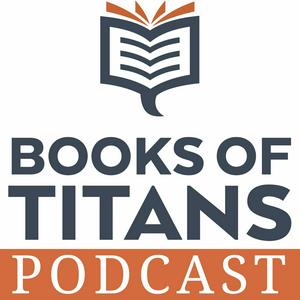
Obtenha a aplicação gratuita radio.pt
- Guardar rádios e podcasts favoritos
- Transmissão via Wi-Fi ou Bluetooth
- Carplay & Android Audo compatìvel
- E ainda mais funções
Obtenha a aplicação gratuita radio.pt
- Guardar rádios e podcasts favoritos
- Transmissão via Wi-Fi ou Bluetooth
- Carplay & Android Audo compatìvel
- E ainda mais funções


Books of Titans Podcast
Leia o código,
descarregue a aplicação,
ouça.
descarregue a aplicação,
ouça.






